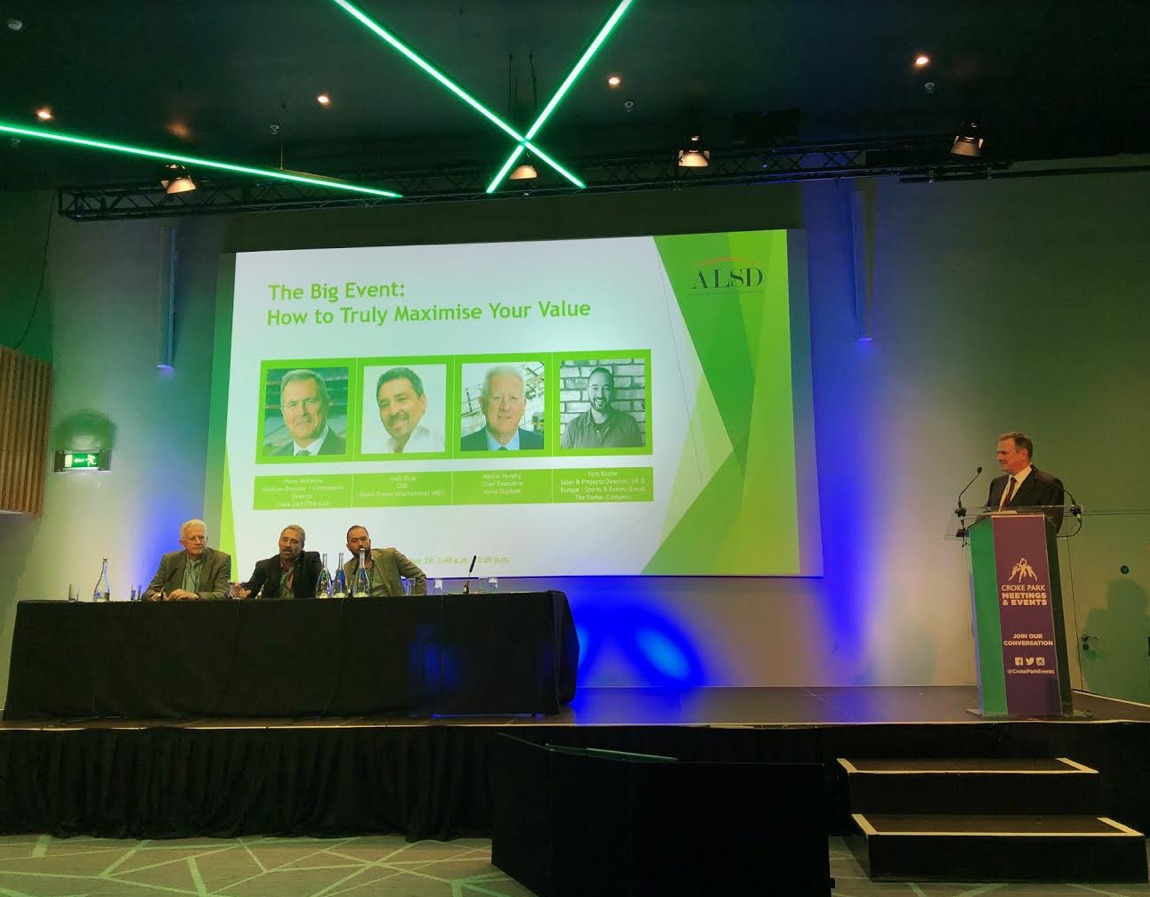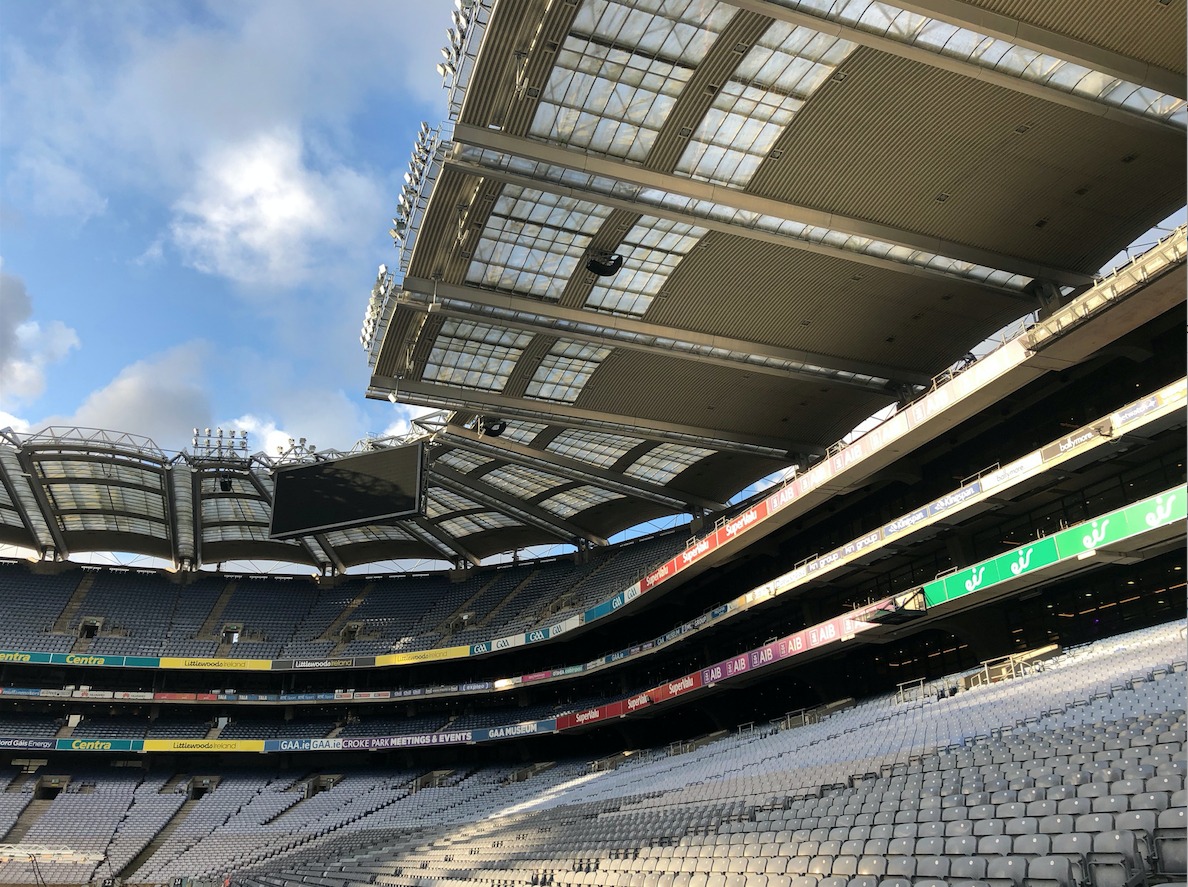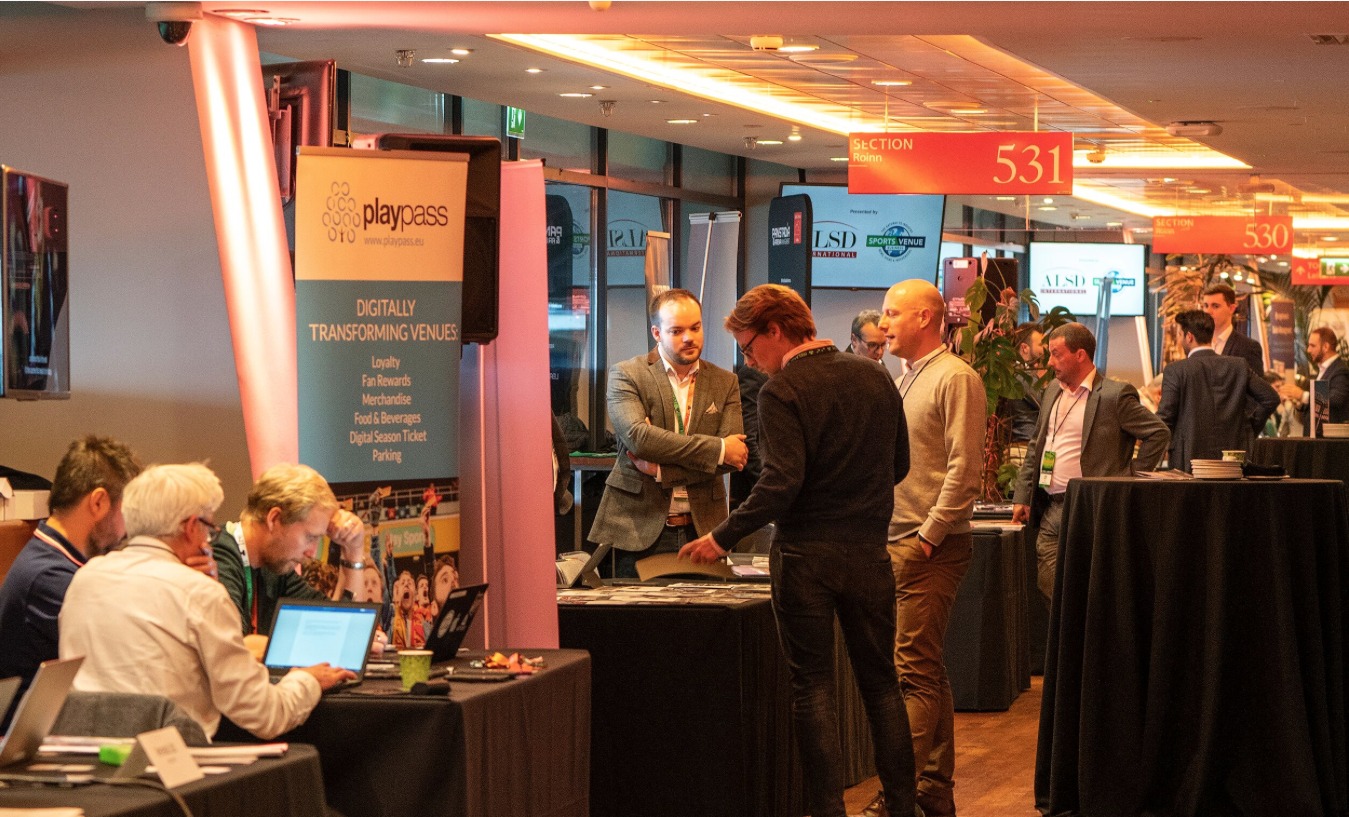- November 11, 2019
- Posted by: SportsV
- Categories: Case Studies, Event News, Featured Articles, Features, Home News, Industry News, News, Press Releases

In this case study, we hear from Andy Rice, Chief Operations Officer at Major Events International (MEI), who outlines his ten key takeaways from the ALSD International conference and exhibition that was held at Croke Park Stadium in Dublin at the end of last month.
Recently, I spoke on the “The Big Event: How to Truly Maximise your Value” panel session at the 2019 edition of ALSD International – Europe’s one and only event dedicated to the Premium Seat and Hospitality sector – which was held at Dublin’s iconic 82,300-seat Croke Park Stadium, home to the Gaelic Athletic Association (GAA). This provided me with an excuse to earwig on what the US (and some thought leaders from Europe) live sports industry has to teach us about harnessing technology, human behaviour analysis and fan services in order to maximise revenues:
1. As a starting point: do the basics brilliantly.
Innovation is on trend and brings significant benefits. But don’t spend money on innovation until the basics are right: reducing queues, improving the customer journey in terms of ticketing and the last mile; communication; fan service, great food, high street pricing, clean toilets etc. Keep thinking about how you can get your fans into the spending zone earlier and keep them there for longer- duh; obviously! – you are selling memories and experiences, not just the ticket to an 80 or 90 minute match. Food and Beverage is the next most important thing after the quality of entertainment on the pitch. Consider CRM to be part of your foundations – this should be part of the basics: According to Caroline McEleney, Managing Director of McEleney Consulting (and former Director of Venue Sales & Marketing at Manchester United) a good CRM made a massive difference to the Club’s business: “It changed the culture: who we were marketing to, when and what”.
2. Corporate Hospitality is dead.
The term ‘corporate’ has become dirty. ‘Premium’ works better and was ubiquitously used throughout the conference – along with the word ‘suite’. ‘Business’ continues to be a major customer for a premium experience for client entertainment, but don’t underestimate the spending power of the high net worth market. The true test of building client/fan relationships is what you do outside of the venue, rather than inside it. Can you send birthday cards to their children? Can you introduce them to potential clients? Can you surprise them with your understanding of what they do, and what is important to them? The traditional format of siloed corporate hospitality is now dated. Businesses now prefer to have a common area to network in – and then join their guests enjoying the atmosphere of the stadium, rather than a closed box.
3. Listening is key.
More than ever before we are living in a multi-generational society. Of course, there have always been differences between generations in the past, but these days the segmentations are greater and the disposable income is spread more widely. Understand each of your fans/customers/clients; ask members of each generation to provide a report on what their peers want and how they expect it to be delivered. A baby boomer will struggle to understand the needs of Gen Z. Then act on what you find. This will also improve your communications strategy and the added value you can provide your fans, to improve share of pocket. Learning from other industries can be useful. Take the airline industry as a model for segmenting and delighting customers. Plan ahead. Who will your future fans be? What will they want? How can you make them fall in love with you now? Create customer personas and get to know them personally. Map out customer journeys and smooth out the bumps.
4. Price is less important than service.
Think about how you can surprise and delight; think about a seamless and frictionless experience. How can you make the ordinary extraordinary? Reducing queues will improve customer service and revenues. If you get the experience right, people will pay. Part of the experience however is not feeling ‘ripped off’ so ensure your F&B prices are pegged at high street prices. Provide a range of value. Cashless is the future and clearly reduces queues and improves ‘take’, but there will be fans that it doesn’t suit; can you provide a place where they can load cards with cash? You will find that often that cash is not even redeemed- more than paying for those machines, and literally giving you money for nothing!
5. One size does not fit all.
Flexibility is key; you can no longer use a cookie cutter approach. Madison Square Garden offer an ultra-premium offer of $100k for corporates which is ‘drawn down on’ – the budget is signed off, options are chosen and the account is often ‘refilled’. Choice drives sales. Dynamic pricing is inevitable.

6. Quality will increase your costs, but improve your bottom line.
Ref Spurs! [i.e. just look at Tottenham Hotspur’s new stadium and the returns it’s created already.]
7. Profits are important, but remember the other important ‘P’s’: People and Planet
Looking after your people will improve service and therefore the loyalty and spend of your fans. Make sure that you have strong values in your club which are generated from the bottom up. Staff who have strong personal values (a good moral compass) provide better service and more loyalty than those that are less aware of ‘self’. Fans are demanding that you acknowledge the need for sustainability and ecological sensitivity. Ignore that at your peril. Take the opportunity to lead the community and set an example. You will be praised for it.
8. Competition is good on the field, but counter-productive off it.
How can you collaborate with other sports rights holders to share data and cross promotion? How can you work with other businesses? For example, how about teaming up with a night club, and offer buses to that after an evening game. Or a festival? A relationship of this nature has multiple touch points. Local businesses will be keen to engage with you (unless they have loyalties to your city rival!). Cross promotional marketing can be powerful. VIK deals can save costs. Ensure you leverage the full power of your sponsors’ marketing engines.
9. Free is not a dirty word.
No-one likes to feel fleeced. Everyone likes something for free. Even if we know we have paid up front, we love all-inclusive holidays; we like to have a meal with our flight; those free eye patches and a pair of pyjamas! Think about how you can add value to your premium seats: food, programme, merchandise…work out how much it costs you, then quadruple that number, and add it to the up-front costs and you will improve your bottom line and your retention rates.
10. Don’t be limited by Olympic medals
Corporate packages all too often are defined by a gold, silver, bronze service. Go beyond this to 6/7/….9 levels of experience and give fans the opportunity to up-grade. The holy grail is the ‘wow’ factor – what can you provide that is unique and special? Access to the press room behind two-way mirrors; viewing the tunnel; use of legends etc.
As Abraham Lincoln said, “The best way to predict the future is to create it”.
My prediction for the future: within 3 years we will see pods of moving seats travelling 360 degrees around arenas and stadium. I loved the concept and someone is bound to jump on it quickly – for the PR value if nothing else! [C360 International, one of the exhibitors at ALSD International, has this very solution ready and available.]
These issues, and many more, will be discussed at the UK Sports and Venues Summit on 21st November at the London Stadium. For further information on the event, go to: https://meievents.eventsair.com/uk-sports-venues-summit-19/

Major Events International was an official partner for the 2019 edition of ALSD International – Europe’s one and only event dedicated to the Premium Seat and Hospitality sector – with Andy Rice joining Martin Murphy, Chief Executive, Aviva Stadium, Tom Roche, Sales & Projects Director – Sports & Events, UK & Europe, The Parker Company, and moderator, Peter McKenna, Stadium Director, Croke Park, on the panel session “The Big Event: How to Truly Maximise your Value”. The event welcomed some 270+ high-level industry professionals from across the Americas, Europe and Russia.

ALSD International is organised and delivered by Sports Venue Business – the industry leader for news, views & developments – in conjunction with the 30-year-old Association of Luxury Suite Directors (ALSD). Check back soon for details on the 2020 edition… Sports Venye Business and the ALSD are both partners for the UK Sports and Venues Summit taking place on 21st November at the London Stadium.
#SportsHospitality #Hospitality #PremiumSales
#ALSDInternational – Europe’s one & only event for the Premium Seat & Hospitality sector
#sportsvenuebiz

